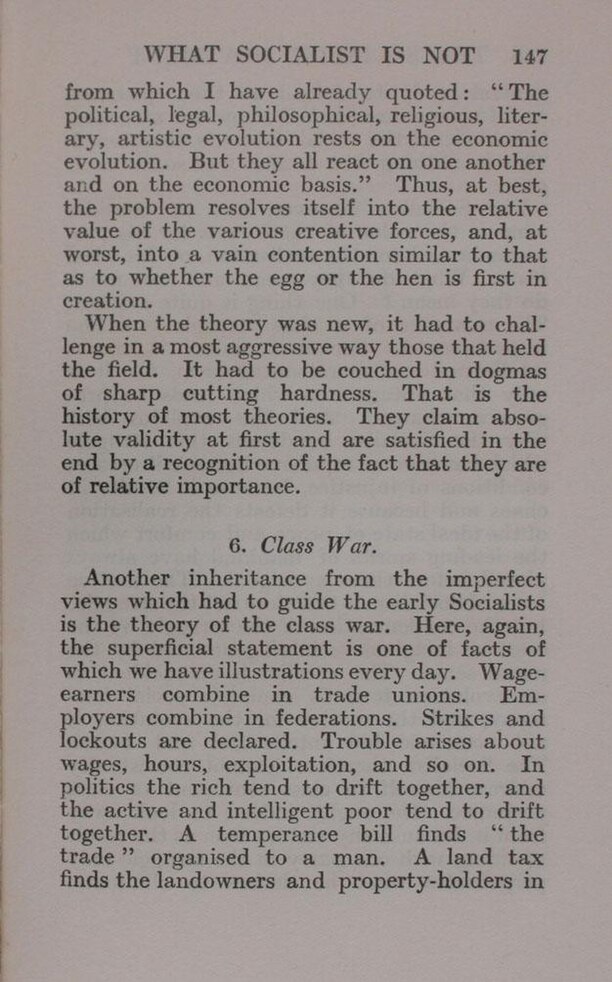from which I have already quoted: "The political, legal, philosophical, religious, literary, artistic evolution rests on the economic evolution. But they all react on one another and on the economic basis." Thus, at best, the problem resolves itself into the relative value of the various creative forces, and, at worst, into a vain contention similar to that as to whether the egg or the hen is first in creation.
When the theory was new, it had to challenge in a most aggressive way those that held the field. It had to be couched in dogmas of sharp cutting hardness. That is the history of most theories. They claim absolute validity at first and are satisfied in the end by a recognition of the fact that they are of relative importance.
6. Class War.
Another inheritance from the imperfect views which had to guide the early Socialists is the theory of the class war. Here, again, the superficial statement is one of facts of which we have illustrations every day. Wage-earners combine in trade unions. Employers combine in federations. Strikes and lockouts are declared. Trouble arises about wages, hours, exploitation, and so on. In politics the rich tend to drift together, and the active and intelligent poor tend to drift together. A temperance bill finds "the trade" organised to a man. A land tax finds the landowners and property-holders in
